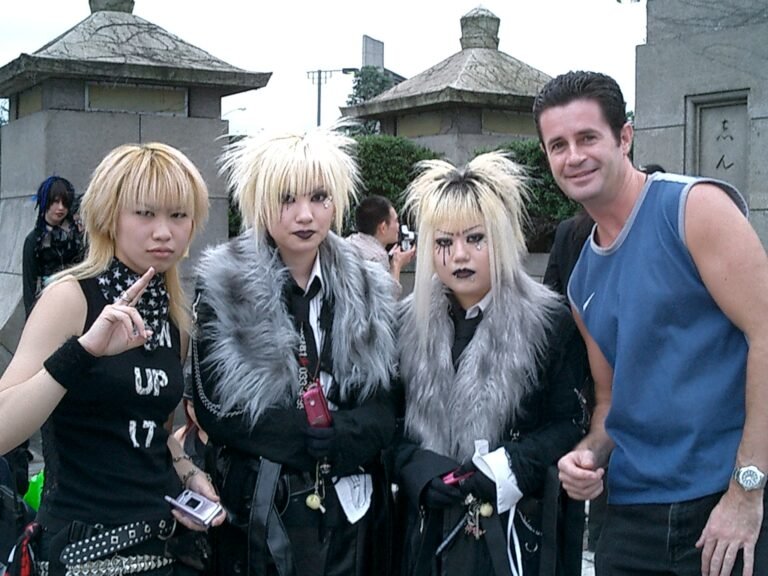Youth Movements : Why a Generation Is Quietly Rebelling Against the Rules of Society
Across the world, something profound is happening beneath the surface.
Not a riot or a revolution in the traditional sense. But a collective refusal.
In a relatively short period of time, several powerful youth movements have emerged across different cultures, economies, and political systems. While they look different on the surface, they share one unmistakable trait : A deep dissatisfaction with society’s unwritten rules.
These are not movements driven by ideology alone. They are driven by lived experience.
Young people are looking at societies deal offered to them — Work hard, wait longer, sacrifice more for a potential reward later in life. But most importantly youth are now starting to ask a simple, yet somewhat dangerous, question :
What if this no longer makes sense?
The Common Grievance Behind Modern Youth Movements
Across nations, the story repeats.
Young people face :
Widening inequality between the “haves” and “have-nots”
Crushing housing costs that make ownership feel impossible
Cultural pressure to follow outdated milestones
Suppression of individuality in favor of conformity
A future that demands more work for fewer rewards
The traditional rites of passage — career, marriage, children, property — are still demanded, but the economic and emotional foundations that once supported them have eroded.
Why give the best years of your life to a system that no longer reciprocates?
This is not laziness.
It is rational disobedience.
Japanese Youth Movement – Satori-no-Sedai
In Japan, the Satori-no-Sedai (the “enlightened generation”) represents a radical break from post-war values.
This generation grew up watching their salaryman fathers sacrifice everything — health, time, family — for company and country. And they asked : For what?
Satori-no-Sedai youth reject the idea that :
- Loyalty guarantees security.
- Hard work guarantees prosperity.
- Self-sacrifice guarantees meaning.
Instead, they prioritize :
- Personal fulfilment.
- Flexibility, over permanence.
- Short-term contracts that align with personal values.
This philosophy directly contradicts with Japan’s long-standing company-first culture. It is a quiet rebellion, but in a deeply conservative society, it is a seismic shift.
Korean Youth Movement – Sampo and Opo
South Korea’s Sampo generation takes a similarly contrarian stance.
“Sampo” translates to giving up three things:
- Marriage
- Children
- Romantic relationships
For many, the movement goes further into Opo — giving up five things, adding Home Ownership and Traditional Careers to the list.
This isn’t rejection of love or ambition. It’s rejection of economic impossibility masquerading as personal failure.
When the cost of participation becomes unbearable, opting out becomes logical.
Chinese Youth Movement – Tang Ping (Lying Flat)
China’s Tang Ping movement — literally Lying Flat — is perhaps the most politically sensitive of all.
Tang Ping youth reject the infamous 996 culture (9am to 9pm, six days a week). Instead of relentless hustle, they choose :
- Minimalism
- Lower consumption
- Reduced ambition by design
This philosophy directly challenges state-endorsed productivity norms and has been heavily censored. Yet it persists.
Interestingly, Tang Ping mirrors Western trends such as Quiet Quitting — a refusal to allow work to dominate identity and existence.
For context on how Tang Ping fits into global labor shifts, see this explainer from a Chinese news website : ThinkChina
Western Youth Movements – Opting Out, Not Dropping Out
In Western societies, youth rebellion looks less philosophical and more financial.
Movements such as:
The Great Resignation
FIRE (Financial Independence, Retire Early)
Die With Zero
… they all challenge the assumption that life should be structured around lifelong employment.
Some aim to escape work early.
Others aim to maximize experiences now instead of hoarding wealth for an uncertain future.
Different tactics. Same underlying message:
Work should serve life — not consume it.
Why These Youth Movements Matter
It’s easy to dismiss these movements as trends, fads, or signs of laziness.
But that would be a grave and naive mistake.
Every one of these global youth movements is a response to structural imbalance. They are very important signals — not noise.
These young people will become future :
- Leaders
- Voters
- Entrepreneurs
- Policymakers
They are communicating through behavior what words no longer achieve : The old social contract is broken.
Rebellion Has Always Changed the World
History doesn’t move forward through obedience.
It moves through :
- Being brave enough to question norms.
- Rejecting outdated systems.
- Redefining what “success” means.
Rebellion spreads because it resonates, and when rebellion is ignored, social fracture deepens.
Working-from-home policies and four-day work weeks are surface-level responses. The grievances run much deeper — into housing, taxation, generational equity, and meaning itself.
The NoRuleBook Perspective
These youth movements are not anti-work. They are anti-meaningless sacrifice.
They reflect the core NoRuleBook idea : Rules should serve people — not the other way around.
Ignore these movements, and societies risk further fracture.
Understand them, and there is an opportunity to rebuild something better.
For a deeper exploration of these movements, their philosophy, and how they connect to broader societal shifts, get your copy of the NoRuleBook eBook, available to purchase here.
Rules relating to the core fabric of society are being questioned, and this should be seen as a positive, and should not be dismissed as a passing trend.
Once questioned they can never return unchanged.









